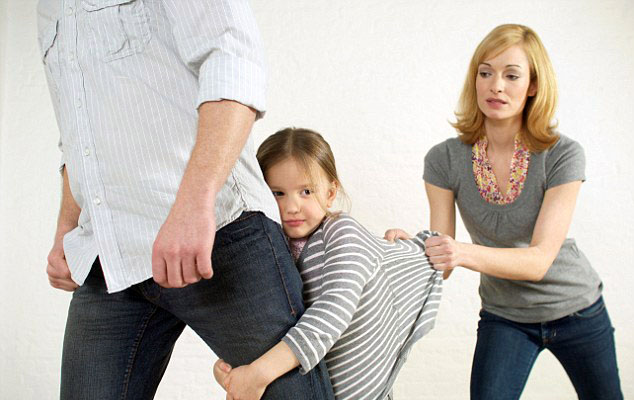Divorce and Kids: 3 Tips on How to Break ‘The News’
When a marriage falls apart there is a lot of trauma involved. Shattered dreams, new lives, and the shame of “failure” all weigh heavily on the minds of those going through divorce, making everything seem harder for a while. However, for parents, the pain and trauma of a divorce is magnified one hundred-fold as they not only adjust to their own new reality, but create one for their children.
Of course, the first step is telling your children you plan to get a divorce. Far from a simple “family meeting”, there are some basic guidelines that parents should follow when preparing to break the news.
Indeed, several decades of research and a continually-high divorce rate in the U.S. has taught us quite a bit about best practices for telling children about a divorce which put the most important thing — their needs — at the fore and help them to cope with the trauma of divorce both in the present and into the future.
1. When and Where Matters
The divorce rate in America first started to rise over 40 years ago, in the 1970s. As such, so-called “children of divorce” are not only more plentiful, but older and more insightful and they have helped psychological researchers to understand what divorce looks like from a child’s perspective, both at the time as well as years into the future.
A 2002 study by Heather Westberg and colleagues entitled “Disclosure of Divorce Plans to Children: What the Children Have to Say” was one of the more comprehensive interview-based looks into how divorce revelations impact children, and what about “the news” they carry into adulthood.
Almost universally, interview subjects agreed that the actual conversation was a “freeze frame” memory which they could recall in vivid detail even decades after it occurred.
Not surprisingly, no matter how it was handled by their parents, whether the kids “saw it coming,” and regardless of age, the conversation is shocking, if not traumatic, for all children.
Therefore, parents need to be hyper-aware of the setting in which they choose to break this news to their kids. Give special care to ensure you are in a safe, comfortable place — at home, for instance — and that, if possible, both parents and all children are present at the time.
This is because dividing the children was another key element of trauma for adult children of divorce. Older kids were saddled with the “burden” of carrying their parents’ secret while younger ones felt neglected by being “left out” of the conversation.
2. Age-Appropriate Concerns Must Be Addressed
Aside from the right environment for breaking the news, which should be the same for all of the children, addressing age-appropriate concerns for each of them is also critical for their short term stability and long-term mental health.
Of course, the old standbys of assuring kids of your love and pointing out that nothing about the divorce is their fault are important initially and in the days and weeks that follow. However, it is also critical to understand how different age groups will react and what their primary concerns will be about their upcoming life change.
While babies and young toddlers may not understand what is going on at any sort of cognitive level, they are highly attuned to your emotions and will react to your stress by acting out or regressing. A consistent routine, regardless of which parent they are with, will help them feel stable and secure even amidst uncertainty and chance.
Alternately, young school age children may worry about consequences of the divorce which you won’t even consider, such as where their pet goldfish will live. They need reassurances that their basic needs will be met and that their care, though different, won’t change.
Allow them to express these concerns and help them to find solutions to these new “problems” that everyone finds acceptable.
Finally, preteens and teenagers may ask more deep, personal questions. Since they understand human relationships at a deeper level, they may need to know “why” or have proof that you tried everything else before resorting to divorce. It is important to answer these questions at their level. You don’t need to tell them everything, but you do need to provide them with answers – without casting blame onto one another.
3. Now Is the Time to Be PARENTS, Not Spouses
The last and perhaps most important point to keep in mind when telling children about divorce is that your role in this phase is as a parent, not a spouse. Regardless of the circumstances surrounding the divorce (infidelity, financial stress, etc.) and regardless of your feelings about your soon-to-be former spouse as a result, you must not show this to your children. It will only cause undue stress in an already-stressful situation.
Putting the needs of your kids above your own is part of the parenting experience, and communicating with them throughout the process of your divorce is no different.
Blaming one another, hostility towards each other, and general negative attitudes now and in the future set your children up for emotional turbulence and harm their chances of nurturing a happy, healthy marriage in their adulthoods.
They cannot feel like they have to choose sides and it must be reinforced now and into the future that your relationship with one another and its ultimate demise had nothing to do with them. They need love, peace, and understanding as they move forward with their new lives and you move forward with yours.
If you find yourself asking the question “Is it really over for good?”, hopefully you’re doing this before you’ve delivered news of the divorce to your kids; if not, be sure that if you make the decision to reunite, it’s for real and for the long-term, or you risk doing far greater damage to your family.


